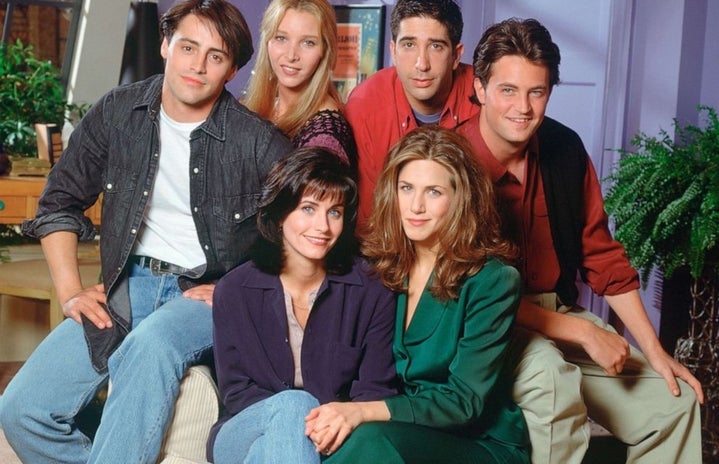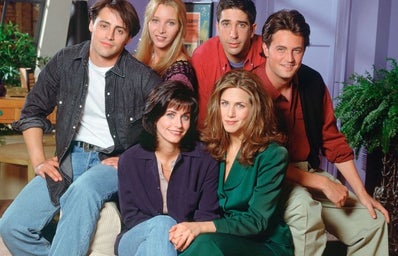We are born into a world of pink and blue. A world where I’ve been called a “typical girl” for liking pink. But, what is it like to be a typical girl in the world of television and sitcoms? Look at Phoebe Buffay from Friends, an astoundingly popular TV show from the 90s that the vast majority of us have watched at least once.
In the episode “The One with the Football,” Phoebe is illustrated as a “typical woman” when she is seen flashing her breasts to win the football match against the boys. Just picture this in your head- the writers of Friends all gathered around a table struggling to develop a plot line where women win the football match. Then, the lightbulb illuminates with the solution: the only way the women can win is if the men are distracted by their breasts! Duh, a girl could never be good at football with tact or skill.
From the baby pink and baby blue blankets we give to newborns, to the specific toys we give to toddlers and children, to the media we surround ourselves with as teens and young adults, the reality is that we are living in a world where these “gender stereotypes” and “gender roles” are socialized to us until they become the norm.
Watching Friends recently, I discovered that amidst the laughter and giggles that the show brings, there lies controversy that we as viewers tend to overlook. Through several instances, the show reinforces gender stereotypes through the language used, portrayal of characters and the relationships they have with each other. Magazines, TV, films, and the internet are full of negative stereotypes.
Some viewers claim that Friends is a problematic sitcom that promotes traditional gender stereotypes and gender roles to its viewers, while some defend the show by arguing that this nature of the show is actually a characteristic of the genre of a sitcom and these gender representations are done to make the show “comedic.”
What appears to be a progressive show on the outset is far from one. As the show progresses, gender stereotypes and sexism dominate. A prime example is the aforementioned episode, where not only does Phoebe flash her breasts, but Rachel is called a ‘useless girl’ and Monica is ridiculed for being competitive ‘like a boy’ –an apt example of how society views women and how the media portrays them in turn. In the same episode, Ross says that ‘We are not going to lose to girls,’ indicating that women are weaker and cannot win a rough game like football.
Though the show does portray a lesbian couple and a surrogate mother, amidst these progressive aspects of the show are embedded the values that stigmatize genders where men are “masculine” and “tough” while women are “more expressive, weak and feminne,” highlighting components of a patriarchy.
As a consequence, women are not treated equally: simply laughing along to these jokes or the way the women are portrayed as “blonde and dumb” has greater impact than we can imagine. For a show that had up to 52.46 million viewers, this can appear to be very problematic. Younger viewers like the ones that watch Friends absorb their ideas on how to behave from the media. Reports indicate TV shows like Friends are “harmful” for such young audiences as they may not possess the intellectual tools that can enable them to distinguish between societal norms and “storytelling functions,” causing them to accept these representations as the norm.
Yes, Friends is dated, there are issues with the way characters are presented but the conversations remain relevant. For instance, if a show like Friends fails to conform to the conventions of the genre of a sitcom, will it be able to succeed financially? Can it make profits? The real question to consider is should “comedy” be an excuse for the consequences like reinforcement of gender stereotypes it brings about? If these “problematic” aspects of the show were removed, would it still be as successful? Would we have anything to laugh at?
Popular shows like Friends have great influence in shaping the beliefs of viewers and we can only hope that they use it for positive change, at least in the near future.
Next time you’re watching your favourite sitcom, put on a new lens and notice the way in which gender roles and stereotypes are reinforced and think about the impact that these have on an impressionable young audience.



